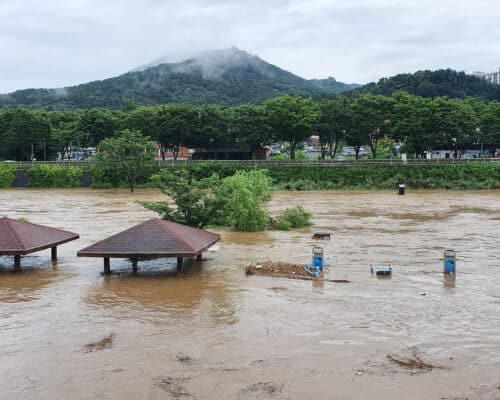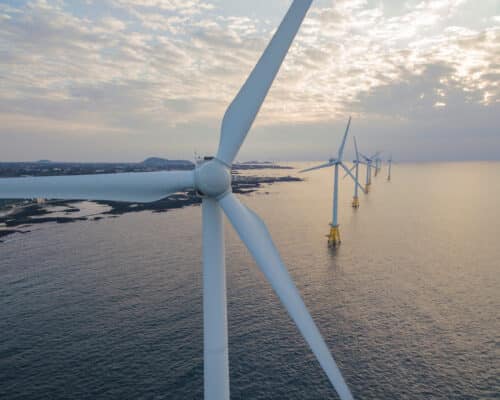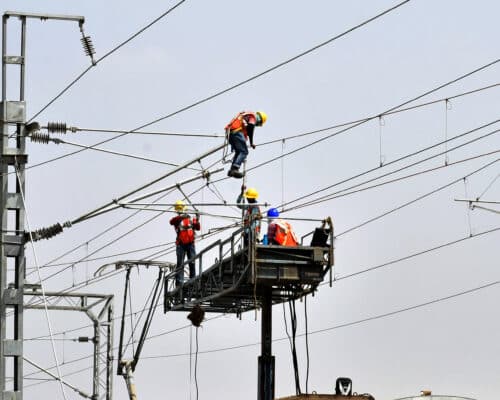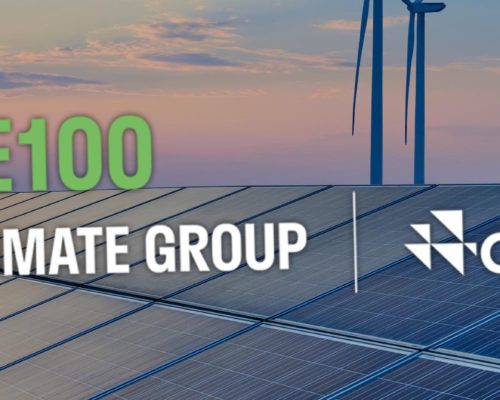South Korea

South Korea’s Energy Mix: Prominent Role of Fossil Fuels
The IEEFA warns that South Korea’s misplaced faith in fossil fuels could create a vicious cycle of spiralling energy costs, derailed decarbonisation progress and loss of opportunities as investors back the transition to renewable energy.
Wind Energy in South Korea – Opportunities and Challenges
The wind energy sector can become the difference that gives South Korea's renewable energy progress that much-needed boost. The country's vast potential for offshore wind is already starting to attract some of the leading developers in the industry. Judging by the first signs, South Korea's future promises to be "windy."

The LNG Plans For Samsung’s New Megaproject Threaten Its Reputation
Today, Samsung is far from being a climate leader - neither in terms of current progress nor when it comes to pledges. However, the company has all the means to become one. Advocating for more renewables and less fossil fuels in South Korea's climate policies is a crucial first step.

Climate Change in South Korea: Floods, Heat and Looking Away
South Korea's strategy to address climate change's impacts is reactive, not proactive, while its newly adopted policies and upcoming plans continue to undermine renewables.

South Korea’s Energy Mix and Its 10th Basic Energy Plan
South Korea's decarbonisation progress so far makes hitting its 2030 and 2050 targets unrealistic. In its current form, the 10th Basic Energy Plan that will come into force this year is unlikely to change that. The country needs more ambitious renewable energy targets, a sentiment also echoed by South Korea's biggest businesses.

The Impacts Of the Electricity Price Increase On Asian Countries
While the electricity price hikes across developing and developed Asian nations started in 2022, they are expected to extend into 2023. This risks impeding economic growth, fueling inflation and affecting the poorest the most. On the bright side, it is the perfect moment for a long-needed energy system overhaul.
South Korea’s LNG Reliance
South Korea is deeply involved in the development of LNG import and gas-to-power infrastructure across the Asia. It must divert its resources to renewables.
Samsung Joins RE100: The Effect on South Korea’s Clean Energy Progress
Korean RE100 members have to take leadership by pushing policy-makers to expand renewable energy supply and lower prices. Samsung's involvement can be the decisive factor that urges the Korean leadership to make a change.
South Korea’s Renewable Energy Transition and Its Barriers
An analysis of the main obstacles that slow down the renewable energy transition in South Korea and the country's efforts to achieve net-zero by 2050.
Hyundai Backtracks On RE100 Pledge With New Ulsan LNG Plant
After joining RE100 and committing to 100% renewable energy, Hyundai Motor Company released plans for a new LNG facility. This directly contradicts its RE100 pledge and raises serious accusations of greenwashing. The move is surprising for the second-largest company in South Korea and is seen by many as a poor publicity choice and a financial risk. The project is currently on hold but remains a possibility.

Hyundai Motor Group Affiliates Join RE100
Four of Hyundai Motor Group's major affiliates announced they are joining RE100, a global initiative of corporations pledging to reach net-zero in their operations. This is an important shift for South Korea's second-largest company and will hopefully put pressure on other industry leaders to follow suit. Now it falls on the South Korean government to promote the development of renewable energy infrastructure to support these targets.
Debunking Net-Zero in Asia: Is It Even Possible?
Net-zero by 2050 in Asia is the desirable scenario, but, judging by the current progress,...

The Future of Energy Transition Under S. Korea’s New President Yoon Suk-Yeol
President-elect Yoon Suk-yeol appears to be a wild card for South Korea's energy transition. On the one hand, he has blatantly stated that it is impossible to reach 100% renewable energy by 2050. On the other hand, he believes the country should strengthen its current renewable energy target for 2030. So where is South Korea headed for in the clean energy transition?
South Korean Green Taxonomy Declared ‘Gas is Green’
The government's decision to include gas in the Korean green taxonomy risks jeopardising the country's net-zero plans. Investors and environmental groups were quick to raise concerns, stating that, as a fossil fuel, gas carries high financial and climate risks. The question is will the Korean government listen?
Most Popular
Categories
-
9
-
31
-
127
-
4
-
17
-
39
-
51
-
14
-
10
-
15
-
23
-
6
-
155
-
162
-
23
-
1
-
22
-
30
-
36
-
65
-
14
-
74
-
40
-
17
-
6
-
28
-
21
-
84
-
245
-
20
-
35
-
31
-
9
-
41
-
35

